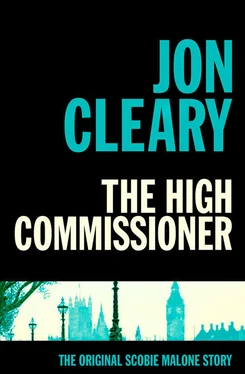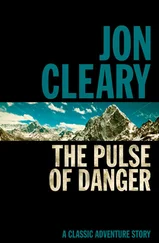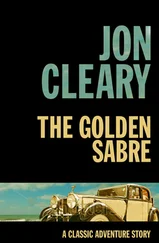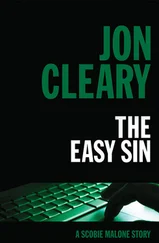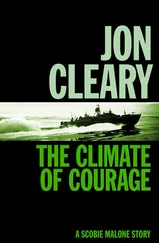Jon Cleary - The High Commissioner
Здесь есть возможность читать онлайн «Jon Cleary - The High Commissioner» — ознакомительный отрывок электронной книги совершенно бесплатно, а после прочтения отрывка купить полную версию. В некоторых случаях можно слушать аудио, скачать через торрент в формате fb2 и присутствует краткое содержание. Жанр: unrecognised, на английском языке. Описание произведения, (предисловие) а так же отзывы посетителей доступны на портале библиотеки ЛибКат.
- Название:The High Commissioner
- Автор:
- Жанр:
- Год:неизвестен
- ISBN:нет данных
- Рейтинг книги:3 / 5. Голосов: 1
-
Избранное:Добавить в избранное
- Отзывы:
-
Ваша оценка:
- 60
- 1
- 2
- 3
- 4
- 5
The High Commissioner: краткое содержание, описание и аннотация
Предлагаем к чтению аннотацию, описание, краткое содержание или предисловие (зависит от того, что написал сам автор книги «The High Commissioner»). Если вы не нашли необходимую информацию о книге — напишите в комментариях, мы постараемся отыскать её.
The High Commissioner — читать онлайн ознакомительный отрывок
Ниже представлен текст книги, разбитый по страницам. Система сохранения места последней прочитанной страницы, позволяет с удобством читать онлайн бесплатно книгу «The High Commissioner», без необходимости каждый раз заново искать на чём Вы остановились. Поставьте закладку, и сможете в любой момент перейти на страницу, на которой закончили чтение.
Интервал:
Закладка:
The three men knew whom the betting would be against: themselves, not Madame Cholon. Pallain said, “London has a very clean record when it comes to assassination.”
“Then it is time its record was spoiled. The English are too smug about their dull way of life. Reading their newspapers, one would think the rest of the world was made up of barbarians.”
Pallain hid his smile, recognising a barbarian when he saw one and being afraid of her. “How soon do you want Quentin–er–eliminated?” He wanted to smile again, embarrassed by the gangster phrase. He had spent all his adult life with gangsters of one sort or another, but he read Racine and dreamed of a life among such people as Proust had known. “We shall have to make plans.”
“Naturally,” said Madame Cholon, her voice tart with contempt for the dullards she had to employ. In the street below she heard the tinkling of the ice-cream van’s bell, and in her homesick ear it sounded like an echo of the temple bells along the Mekong River. She looked out of the window again, saw the thin explosion of sun behind the range of clouds far away to the west, and felt her own sudden flash of optimism. “One does not kill a man without making plans.”
Chapter Two
John James Quentin (Corliss):
Born: Tumbarumba, New South Wales, July 15, 1915.
Parents: Peter Corliss and Ida Fahey Corliss died in car accident October 12, 1925. Corliss, only child, then raised by aunt, Mira Fahey, spinster, who died January 22, 1934.
Corliss moved to Sydney February 1934, joined Metropolitan Water, Sewerage and Drainage Board as trainee surveyor.
Married Freda Wiseman, previously Weitzmann, August 20, 1936. No children of marriage. Weitzmann had arrived in Australia alone from Vienna January 1936. No relatives of hers have been traced.
Stabbed corpse of Freda Corliss discovered by neighbour December 9, 1941. One wound in right breast, inflicted by sewing scissors.
Corliss disappeared. Reappeared as John Quentin May 12, 1942, date of voluntary enlistment in Royal Australian Navy at Perth, Western Australia.
Married Sheila Redmond, daughter of Leslie Redmond and Elizabeth Cousins Redmond, both deceased, Perth, July 10, 1942. No children of marriage . . .
“Would you please fasten your seat belts? We shall be landing at London Airport—”
Malone closed the file and put it back in his brief-case. It was a comprehensive file, sixty pages thick, a monument to the diligence of the researcher. On the trip over Malone had read it three times, reading it at night when the passenger beside him, a talkative grandmother, had been asleep. She had got off at Zürich (“Then I’m going down to Rome. To see the Pope. I’m a Presbyterian myself, but we can’t all be bigots, can we?”), and the seat beside Malone had since been empty. In this last half-hour, free from interruptions and the grandmother’s inquisitive eye, he had been trying to memorise the summary that was attached to the file. The more he read, the more he could taste the relish with which the researcher had worked: he really had enjoyed the change from dry political statistics and trying to guess the voters’ intentions. John Quentin (or Corliss) had been pinned to these pages like a dead butterfly.
But the researcher had, in the final analysis, failed. He had pinned a specimen to a board, described its history, illustrated some of its characteristics; but John Quentin was still no more than a name (or two names) and a collection of facts; the researcher had not discovered what made him tick. And Malone had begun to feel the first stirring of an unease that had not troubled him since he had been sent out, years ago, to make his first arrest. Over the years he had come to appreciate that the less you knew about a man, the less you were involved emotionally when it came time to bring him in. Now, however, a personality, like a faint watermark, was hidden behind the typed facts; and, despite himself, Malone was intrigued by it. And for a policeman that way could lead to headaches. Subjectivity, he had heard Leeds say, was as corrupting as money.
Twenty minutes later the immigration officer was looking at his passport. “Police officer? On duty, sir?”
Malone shook his head. “Holiday.”
“Enjoy yourself.”
“Thanks,” said Malone, and wondered when he had last enjoyed an arrest. He could for a while hate a murderer who had committed a particularly horrible crime, the callous bashing of an old woman or the rape and killing of a young child; but later there would come the moments of doubt, the wonder at what had caused the flaw in the murderer. He didn’t believe all of the psychiatrists’ theories that the flaw in any man could be found in his childhood; he was old-fashioned enough to believe that some men were born bad. But why? He often asked himself, and left himself open to further questions that bothered him more than his colleagues suspected. He had often thought that he would like to have worked on the case of Cain. After that all other murder cases might have been simple.
The flight had been delayed for hours by storms in Zürich, and now it was late afternoon as he rode in in the airport bus to London. He looked out at England, catching glimpses of it from the motorway. He had never dreamed of travelling the wide world; well aware of his insularity and able to smile at himself, he had always been content with Australia and what it offered him. He was no explorer. Columbus, Magellan, Cook were men who probably would never have been happy while there was a horizon to draw them. Up till now, at thirty-one, horizons had meant little to him.
But England now was not something beyond the horizon; it was here around him. He could feel his excitement and interest growing; it was a pity that he was going to have no more than a day or two here. Perversely he began to hope that Quentin might fight the warrant, might ask for extradition procedure. It would play hell with Australia’s good name, but it would at least give Malone time to look at London. Then he cursed himself for his lack of patriotism. He was as hypocritical as Flannery.
He checked in at a hotel in Cromwell Road in Kensington. The affable Irish porter showed him to his room, talking a torrent all the way. “Ah, we get a lot of Aussies here at the hotel, sir. It must be a grand country, the numbers of you that are always coming over here.” Malone looked at the porter, but the latter wasn’t being sarcastic, only Irish. “Would you be on business, sir?”
“No, holiday.” Malone took out his note-book and looked at an address. “Is Belgrave Square far from here?”
The porter put down the bags. “Not far, sir. Was it an embassy you were wanting?” He had an Irishman’s frank curiosity: no one in Multinahone had had any secrets.
“No. Just friends.”
The porter’s eyebrows went up. “It’s a posh area, that it is, sir.”
“I have posh friends.”
The Irishman recognised the rebuff: some Aussies were just like the bloody English, keeping everything to themselves. He gave Malone directions on how to get to Belgrave Square and went out of the room, wondering why a man who stayed in a thirty-bob bed-and-breakfast room and who gave only a shilling tip should have posh friends in Belgravia.
Malone, a relaxed man who could sleep anywhere, even in an economy class airplane seat, was not tired by the long flight from Australia. He showered, changed into the light grey suit he had brought as a concession to the English summer, looked at his watch and decided to go and see Quentin at once. He had already made up his mind that he would confront Quentin with the arrest warrant at his home and not at his office at Australia House. He had never arrested a public official before and he did not want to be too public about it. Seven o’clock. The High Commissioner would probably be home now, doing whatever ambassadors did in their off-duty moments, having a bath, having a drink, wondering why they hadn’t taken up something easy like mountaineering or gun-running. It must be a bastard of a life, Malone thought: even the small diplomacies of a policeman’s life were difficult enough. But soon it would be over for Quentin.
Читать дальшеИнтервал:
Закладка:
Похожие книги на «The High Commissioner»
Представляем Вашему вниманию похожие книги на «The High Commissioner» списком для выбора. Мы отобрали схожую по названию и смыслу литературу в надежде предоставить читателям больше вариантов отыскать новые, интересные, ещё непрочитанные произведения.
Обсуждение, отзывы о книге «The High Commissioner» и просто собственные мнения читателей. Оставьте ваши комментарии, напишите, что Вы думаете о произведении, его смысле или главных героях. Укажите что конкретно понравилось, а что нет, и почему Вы так считаете.
